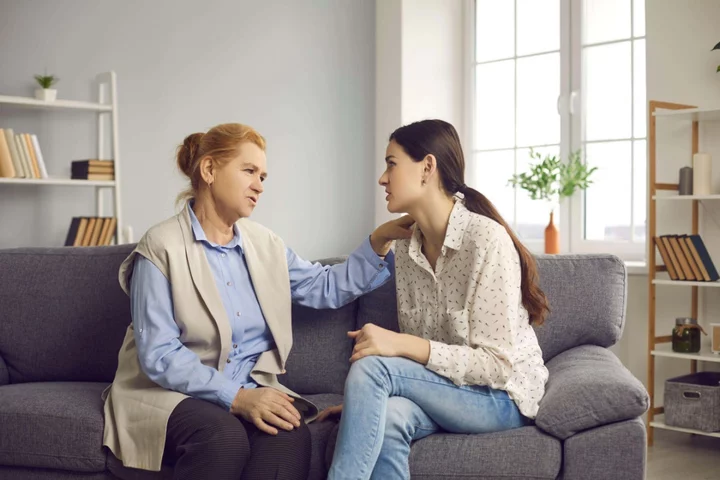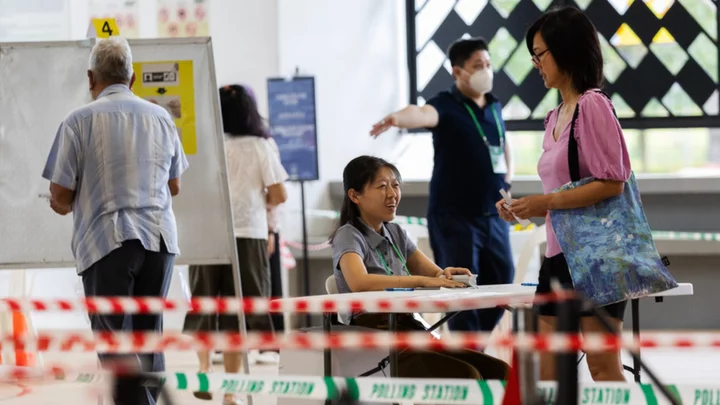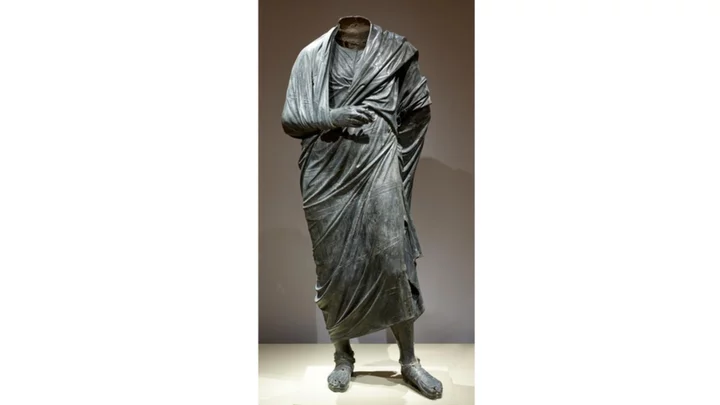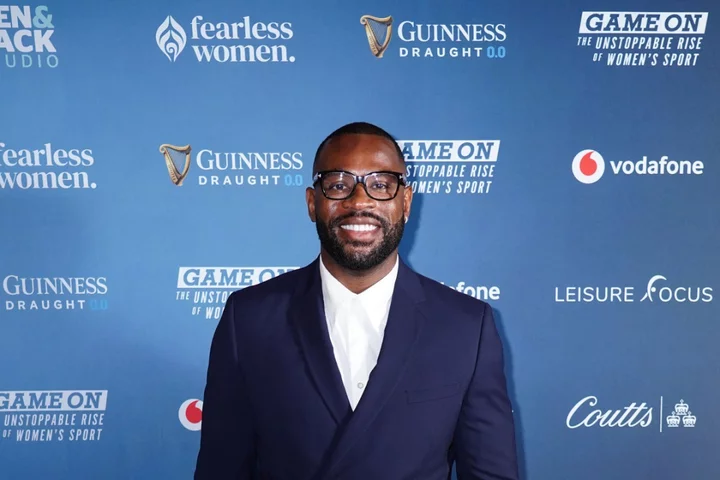
Alzheimer’s: How and when to talk to someone about their memory loss
You may have noticed someone close to you changing – perhaps they are more forgetful, not quite themselves. After a quick search online or a chat with family members or friends, you may be left thinking they’re developing Alzheimer’s. But how do you approach a conversation about dementia when it’s such an emotive topic? “As we get older, we’re all prone to becoming more forgetful, taking longer to remember certain things, getting distracted more easily or struggling to perform several tasks at once,” says head of knowledge at Alzheimer’s Society, Dr Tim Beanland. “These are common signs of getting older, but there is still a very sharp distinction between normal ageing and dementia.” Symptoms that may worry you “Symptoms of dementia gradually get worse over time,” Beanland explains, “and can appear as memory loss, confusion, needing help with everyday tasks, problems with language and understanding, or changes in behaviour. Although symptoms typically occur in people aged 65 and over, they can occasionally appear as early as twenty years sooner.” You may be scared Seeing these types of changes is understandably worrying – it’s a reminder of the age and health of those around us. “Noticing what might be dementia symptoms in a loved one can be distressing and confusing, particularly for people who have never dealt with dementia before,” Beanland says. “Both parties may feel nervous or worried about how to address the topic of potential dementia symptoms, and may not know where to begin.” Be open Beanland suggests asking questions like, ‘How are you feeling lately, physically and emotionally?’ Or ‘Do you have any health worries you’d like to talk about?’ It’s important to remember when approaching someone who may be experiencing dementia symptoms to do so gently, calmly and in a reassuring and supportive manner. “People experiencing dementia symptoms may find it difficult, or take a bit longer, to find the words they wish to say,” notes Beanland. “So, allowing them extra time, or giving them gentle prompts, can help them find the words they’re looking for, without highlighting they’ve forgotten something.” Do your research Dementia or Alzheimer’s may not be the only answer. It’s important to remember there are other conditions which can cause similar symptoms to dementia, such as thyroid problems or urinary tract infections, says Beanland. “Try to focus on helping the person see their GP, to find out what is causing the problems they are having. It’s also important to understand that, whether you are experiencing dementia symptoms personally or you’re a concerned loved one, you do not have to face dementia alone. There is support out there for you. “I’d encourage anyone worried about their own or a loved one’s memory to use Alzheimer’s Society’s symptoms checklist. It will help to unlock the vital care and support you need, and give you the precious time needed with your family to plan for the future.” Read More Charity boss speaks out over ‘traumatic’ encounter with royal aide Ukraine war’s heaviest fight rages in east - follow live As Simon Cowell shares positive therapy experience, how can it help even if you aren’t in crisis? Project launched to bust myth that cancer is a ‘white person’s disease’ 10 slick ways to kit out your student digs
2023-09-01 13:17

Thailand's ousted former leader Thaksin Shinawatra asks King for royal pardon
Former Thai prime minister Thaksin Shinawatra has submitted a request for a royal pardon, the outgoing justice minister said, just over a week after his dramatic return to the country from more than 15 years in self-exile.
2023-09-01 11:58

Singaporeans vote for ceremonial president after rare political scandals
Singaporeans are voting in their first contested presidential election in more than a decade.
2023-09-01 11:50

Jet ski tourists shot dead off coast of Algeria
Coastguards reportedly kill two French-Moroccan tourists who strayed into Algerian waters from Morocco.
2023-09-01 10:17

'Marcus Aurelius' statue seized from Cleveland museum in looting probe
The statue, believed from Turkey, is part of an antiquities smuggling probe, NY investigators say.
2023-09-01 06:46

White homeowner will stand trial for allegedly shooting Black teen who went to the wrong Kansas City house, judge rules
The White homeowner accused of wounding a Black teen who went to the wrong Kansas City address in April will stand trial for the shooting, a Missouri judge ruled Thursday.
2023-09-01 05:50

Prigozhin alludes to threats in new video release
The video appears to have been filmed shortly before the Wagner chief died in a plane crash near Moscow.
2023-09-01 01:17

Marijuana users have higher levels of toxic metals in blood and urine, study finds
People who use marijuana were found to have higher levels of lead and cadmium in their blood and urine, in comparison to those who do not use weed, according to a new study. The team of researchers at Columbia University analysed data from blood and urine samples collected between 2005 and 2018 as part of the National Health and Nutrition Examination Survey, a program conducted by the National Center for Health Statistics. They looked at samples of 7,254 people who said they had used marijuana in the last 30 days. Participants were examined for levels of heavy metals and 358 people were found to have 27 per cent higher blood lead levels than those who said they didn’t use either marijuana or tobacco. There were also 22 per cent higher levels of cadmium in those marijuana users according to the research, which was published Wednesday in the journal Environmental Health Perspectives. Researchers also found that the urine samples showed similar results. High levels of cadmium can cause stomach irritation, abdominal cramps, nausea, vomiting and diarrhoea, according to Better Health. Researchers found that although tobacco is the main source of cadmium exposure in the general population, the study showed similar exposure levels among cannabis users. “For both cadmium and lead, these metals are likely to stay in the body for years, long after exposure ends,” Tiffany Sanchez, an author of the study and an assistant professor of environmental health sciences at Columbia’s Mailman School of Public Health said to NBC News. As cannabis plants can absorb heavy metals from soil - the new findings demonstrate that heavy metals in cannabis plants can also wind up in the human body. “Previous studies have measured metals in marijuana plants, products, or marijuana smoke,” study authors have said. Lead exposure can be particularly harmful to children and pregnant women. In adults, chronic exposure to lead increases the risk of high blood pressure, heart problems and kidney damage. “Our study wasn’t able to tease apart whether or not self-reported cannabis users were using medical or recreational cannabis, so we can’t say definitively if medical cannabis users specifically had higher metal levels,” Sanchez said as reported by CNN. “This is something that should be evaluated in future studies.” Heavy metals bind to parts of your cells that prevent your organs from doing their job, according to the Cleveland Clinic and symptoms of heavy metal poisoning can be life-threatening and can cause irreversible damage. “Immunocompromised people, such as those going through chemotherapy, may be at greater risk from metal exposure or from other common cannabis contaminants like molds. However, this is very much an understudied area,” Sanchez added. On Wednesday, the Department of Health and Human Services recommended that the Drug Enforcement Administration ease restrictions on marijuana by moving it from Schedule I drug to Schedule III. HHS Secretary Xavier Becerra said on X, the platform formerly known as Twitter, that the agency has responded to President Joe Biden’s request “to provide a scheduling recommendation for marijuana to the DEA.” “We’ve worked to ensure that a scientific evaluation be completed and shared expeditiously,” he added. Senate Majority Leader Chuck Schumer said in a statement that HHS had recommended that marijuana be moved from a Schedule I to a Schedule III controlled substance. “HHS has done the right thing,” Schumer said. “DEA should now follow through on this important step to greatly reduce the harm caused by draconian marijuana laws.” Rescheduling the drug would reduce or potentially eliminate criminal penalties for possession. Marijuana is currently classified as a Schedule I drug, alongside heroin and LSD. According to the DEA, Schedule I drugs "have no currently accepted medical use in the United States, a lack of accepted safety for use under medical supervision, and a high potential for abuse." Additional reporting from agencies Read More Biden health agency recommends classifying marijuana as lower-risk, opening potential for major policy changes Seth Rogen reveals why he smokes marijuana ‘all day, every single day’ Rugby star Ugo Monye: Boarding school shaped my career and my personality Queen Latifah calls for more ‘inclusive healthcare’ for people with obesity As Simon Cowell shares positive therapy experience, how can it help even if you aren’t in crisis?
2023-09-01 00:46

Fishing with fear as Philippines stands up to China
Fishermen are on the frontline of a worsening territorial standoff as Manila asserts itself against China.
2023-09-01 00:15

Israeli soldier killed, Palestinian teen attack suspect shot dead amid violent surge
A group of soldiers was hit during a spate of violent incidents in the West Bank and East Jerusalem.
2023-08-31 23:26

Rugby star Ugo Monye: Boarding school shaped my career and my personality
The Rugby World Cup and new series of Strictly Come Dancing are both set to kick off soon – and one man who knows just how hard both of them are is Ugo Monye. “Strictly is gruelling,” says the former rugby pro-turned-pundit, who played with Harlequins and England before taking part in Strictly in 2021. “At times you’re training for 12 hours a day. So, you could go for a period of three or four days where all you do is wake up, go to the studio, go to sleep, wake up, go to the studio, go to bed.” He recalls recently telling his friend, comedian Eddie Kadi, all about this, the night before he was announced as a contestant for this year’s show. And because of the demanding schedule, taking care of yourself becomes a top priority. “You try and eat right, try and get as much sleep as possible. The biggest initial challenge everyone will find is their feet, because they wouldn’t have been used to dancing for 11 hours a day,” adds Monye, 40, who was partnered with Oti Mabuse on the show. Trading his rugby boots for ballroom shoes came with some challenges, but he still completed five weeks on the show (Monye and Mabuse finished in 11th place that year). “I remember when I did the quickstep, I had my smart watch on, which showed that I danced over 45km in five days,” he recalls. “I remember the first week or two, just the nervousness of rolling out of bed and putting my feet on the carpet because you didn’t know how they would feel.” Having played such a physically demanding sport for 13 years at pro level, Monye was not in bad shape. But Strictly was another “type of pressure”. “When I retired in 2015, I never thought that I’d be dancing, dressed in a low cut, electric pink, short sleeve shirt doing the samba. It’s something I’m actually really proud of,” he adds happily. Like lots of people, Monye, who has two daughters – Phoenix Lilly, six, and Ruby, three, with his ex-wife Lucy – recalls how his approach to self-care has evolved over the years. “Going back to the early 2000s, I was living the dream, right? I was 18 and I got a professional contract playing for my boyhood club, and within a year I travelled the world playing for England,” he says. “I was all, what mental health? I’m flying, right?” Things shifted with time, however, and he began to see the importance of having a proactive approach to maintaining his mental wellbeing. “I remember speaking to a friend, who is really interested in mental health, [about how] people often seek [mental health support] after something bad or traumatic has happened to a point where they actually need it. But it’s more like how you have to go and get an MOT on your car and service it,” he explains. “I think towards the end of my career, I became more aware of it. I have now definitely paid more attention to it and I absolutely love psychology, so I love understanding how the mind works.” Since his retirement, Monye – who has teamed up with Samsung ahead of the World Cup, which starts on September 8 – he has been busy being a dad, alongside jumping into a vibrant broadcast career. Having daughters made him reflect on his own upbringing too – going from being raised by a single mother on a London council estate, to a rural boarding school in Hampshire where he had his education funded (Monye secured a sports scholarship when he was 13). He attributes a lot of his success to his schooling. “I think the person I am now was born at age 13. Everything I was surrounded by was slightly different in that world. It was where I first was introduced to rugby, which then has quite clearly gone on to shape my career, the pathway that I have now, but also my personality. “I think I rely upon myself, I back myself. I had to depend on myself and try and get things done,” he reflects. “I think my personality traits, good and bad, were all developed at boarding school.” Having spent large chunks of his childhood away from family, how does he manage his own work-life balance as a parent now? “How do you manage your work-life balance? Well, you stand in the middle of the park taking a phone call,” he jokes (Monye is in the playground with his girls while we talk). “The time I have with them is absolute quality. For the World Cup, I’m going out for like three or four stints. I’d love them to be able to come out, but with school, it is a bit more difficult. “But I have said to Phoenix already that next year is the Olympics, and she loves gymnastics, so she’s going to be getting on the Eurostar with me. She is watching a lot of clips of Simone Biles at the moment on YouTube and she’s obsessed.” He wants to see his daughters inspired by brilliant women. “I love to watch sports with my daughters,” says Monye. “And we loved watching the Women’s World Cup. I had to get them to come and watch incredible women just do it.” Ugo Monye has teamed up with Samsung to help the nation see the new laws clearly and watch the match in supersize, thanks to the Samsung 98” Q80C TV (samsung.com/uk/big-screen-tv). Read More Charity boss speaks out over ‘traumatic’ encounter with royal aide Ukraine war’s heaviest fight rages in east - follow live As Simon Cowell shares positive therapy experience, how can it help even if you aren’t in crisis? Project launched to bust myth that cancer is a ‘white person’s disease’ 10 slick ways to kit out your student digs
2023-08-31 23:25

Samuel Newey: British volunteer, 22, killed fighting in Ukraine
The family of Samuel Newey say he died fighting alongside Ukrainian forces on Wednesday.
2023-08-31 22:29
